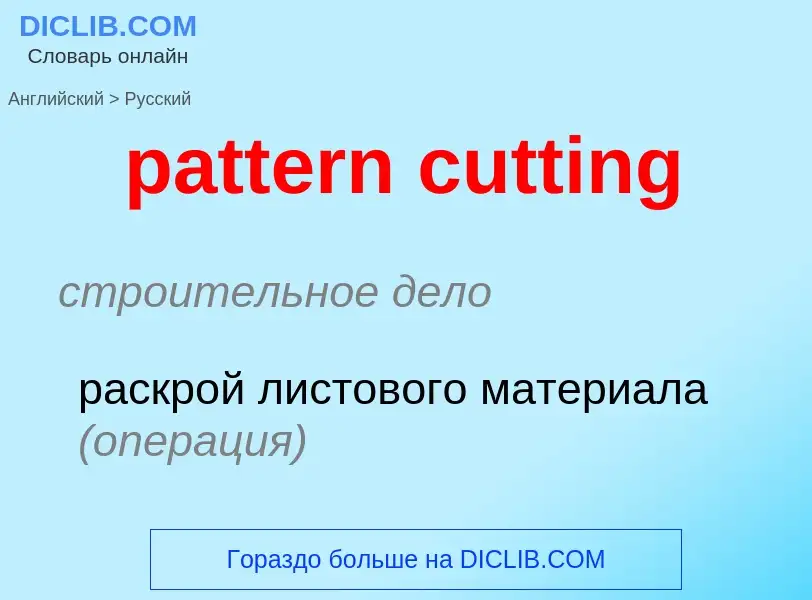Перевод и анализ слов искусственным интеллектом ChatGPT
На этой странице Вы можете получить подробный анализ слова или словосочетания, произведенный с помощью лучшей на сегодняшний день технологии искусственного интеллекта:
- как употребляется слово
- частота употребления
- используется оно чаще в устной или письменной речи
- варианты перевода слова
- примеры употребления (несколько фраз с переводом)
- этимология
pattern cutting - перевод на русский
строительное дело
раскрой листового материала (операция)
Определение
Википедия

In sewing and fashion design, a pattern is the template from which the parts of a garment are traced onto woven or knitted fabrics before being cut out and assembled. Patterns are usually made of paper, and are sometimes made of sturdier materials like paperboard or cardboard if they need to be more robust to withstand repeated use. The process of making or cutting patterns is sometimes compounded to the one-word Patternmaking, but it can also be written pattern(-)making or pattern cutting.
A sloper pattern (home sewing) or block pattern (industrial production) is a custom-fitted, basic pattern from which patterns for many different styles can be developed. The process of changing the size of a finished pattern is called grading.
Several companies, like Butterick and Simplicity, specialize in selling pre-graded patterns directly to consumers who will sew the patterns at home. These patterns are usually printed on tissue paper and include multiple sizes that overlap each other. An illustrated instruction sheet for use and assembly of the item is usually included. The pattern may include multiple style options in one package.
Commercial clothing manufacturers make their own patterns in-house as part of their design and production process, usually employing at least one specialized patternmaker. In bespoke clothing, slopers and patterns must be developed for each client, while for commercial production, patterns will be made to fit several standard body sizes.



.jpg?width=200)
![Fitting a nettle/canvas-fabric on a [[dress form]] Fitting a nettle/canvas-fabric on a [[dress form]]](https://commons.wikimedia.org/wiki/Special:FilePath/Fitting muslin dummy.jpg?width=200)
.jpg?width=200)



![tailor's tack]] with thread to mark a pattern on fabric before cutting the fabric tailor's tack]] with thread to mark a pattern on fabric before cutting the fabric](https://commons.wikimedia.org/wiki/Special:FilePath/Basting pattern markings.jpg?width=200)



